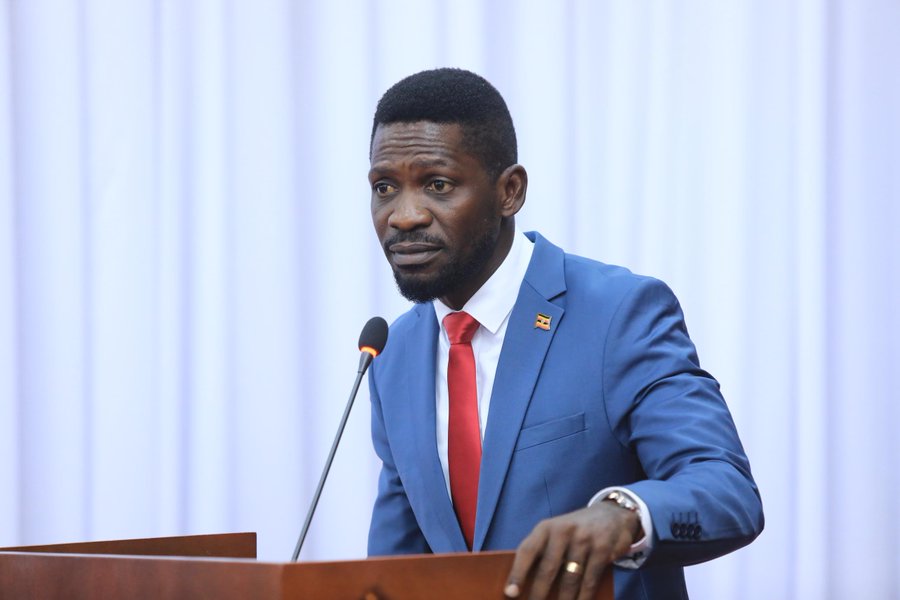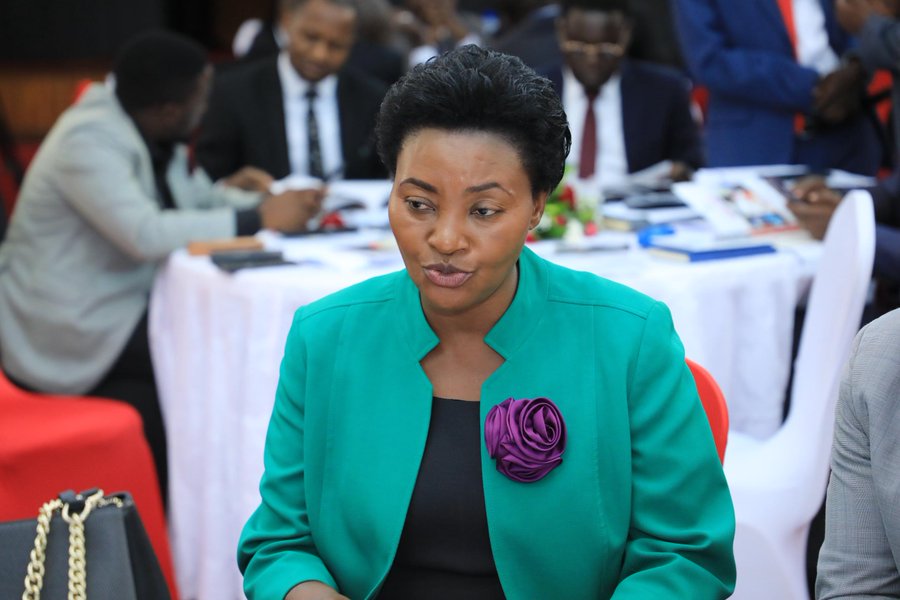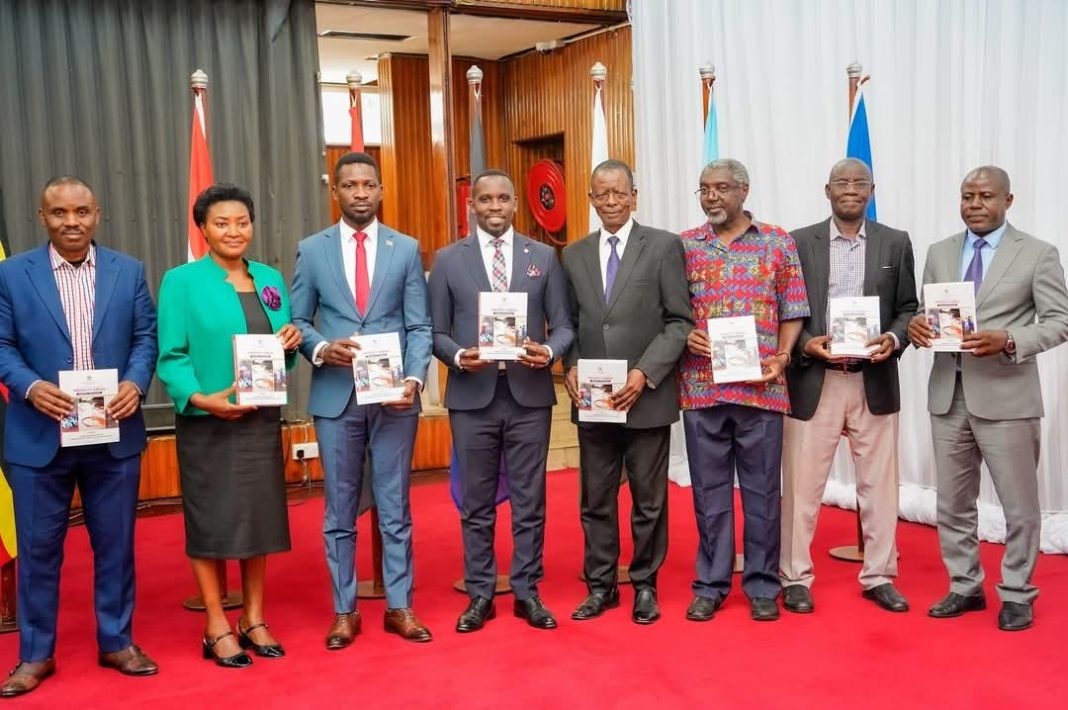The President of the National Unity Platform (NUP), Robert Kyagulanyi, has said there is no better place to speak about corruption in Uganda than Parliament, as the institution has distinguished itself as the “High Temple of Corruption.” He cited Speaker Anita Among and several cabinet ministers for allegedly taking iron sheets meant for the poor people of Karamoja.
Kyagulanyi made these remarks while addressing a gathering at Parliament during the presentation of the 2025/26 Alternative Budget. He pointed out multiple scandals involving the 11th Parliament, including the payment of a service award to the former Leader of Opposition before he had even begun his duties.

“There is no better place to talk about corruption than here, the Parliament of Uganda, which has in recent days distinguished itself as the high temple of corruption. This Parliament has been embroiled in some of the most outrageous scandals, shamelessly siphoning taxpayers’ money with impunity. We have seen unprecedented levels of corruption, from the Speaker and government ministers sharing iron sheets meant for the poorest of the poor to the Leader of Opposition being rewarded before even assuming office,” Kyagulanyi stated.

He further argued that corruption has become institutionalized under the Museveni regime, serving as a tool to reward the corrupt and silence or eliminate those who fight against it.
“One of the biggest achievements of the Museveni regime is the institutionalization of corruption. Corruption has become a currency in this regime—used to reward cronies and suppress dissent. It is a tool for Museveni to maintain power. Parliament, much like his regime, has unfortunately become a space that attracts the worst of characters and corrupts the best. My hope and prayer are that our leadership here will not be compromised like it was in the past,” he added.

Former Leader of Opposition Winnie Kiiza dismissed claims that Uganda is a poor country, arguing that such descriptions arise from poor leadership and mismanagement.
“Uganda is not a poor country, as some claim. It is mismanaged by leaders who run it with a kiosk mentality. This has led to a situation where corruption is no longer just an issue it has become a fully functioning corporation. Corruption has been so deeply entrenched that those who refuse to participate in it are seen as out of place,” remarked Kiiza.
She further highlighted the devastating impact of corruption on the health sector, revealing that over UGX 316 billion is lost due to expired drugs, while many Ugandans die due to a lack of medical supplies.
“Can you imagine a country having expired drugs worth UGX 316 billion while citizens are dying due to a lack of essential medical supplies? A healthy nation is built by a healthy population. If leaders are indifferent to the welfare of their citizens, do they even deserve to be called leaders?” Kiiza questioned.

The Leader of Opposition, Joel Ssenyonyi, criticized the government’s reckless spending on projects like the Lubowa Specialised Hospital, noting that 30% of Uganda’s tax revenue is spent on debt repayment.
“Government’s reckless spending on fraudulent projects while neglecting essential services is a betrayal of the social contract it has with the people. The Lubowa Specialised Hospital project is a prime example of organized corruption. Billions of taxpayer funds have been sunk into this project, yet public hospitals across the country remain underfunded and incapable of providing basic care,” Ssenyonyi argued.

He added that such projects serve as avenues for siphoning public funds, reinforcing a kleptocratic system that prioritizes elite interests over national development.
“Because of this, many Ugandans are forced to seek treatment abroad or suffer in poorly equipped health facilities. These projects have become corruption pipelines, further entrenching a system that benefits a select few while the rest of the population suffers,” he said.
Ssenyonyi emphasized that the Alternative Budget priorities are designed to realign Uganda’s financial policies toward serving its citizens.

“Persistent fiscal indiscipline, excessive borrowing, and corruption have placed immense pressure on our economy. The high cost of debt servicing consuming over 30% of our budget leaves little room for investment in critical sectors. Our people deserve a budget that works for them, not one that burdens them with excessive taxes while delivering poor services,” Ssenyonyi asserted.
He also criticized the inefficiencies in tax administration, revenue leakages, and the government’s failure to enforce tax policies effectively. He cited the lack of taxation on gold miners and exporters despite legal provisions for it.
“People engaged in gold mining are raking in billions of shillings, yet they do not pay taxes. Why? Because the most powerful individuals in this country control the trade and exempt themselves while the rest of the population is taxed. This must change there must be equity in taxation,” Ssenyonyi emphasized.























